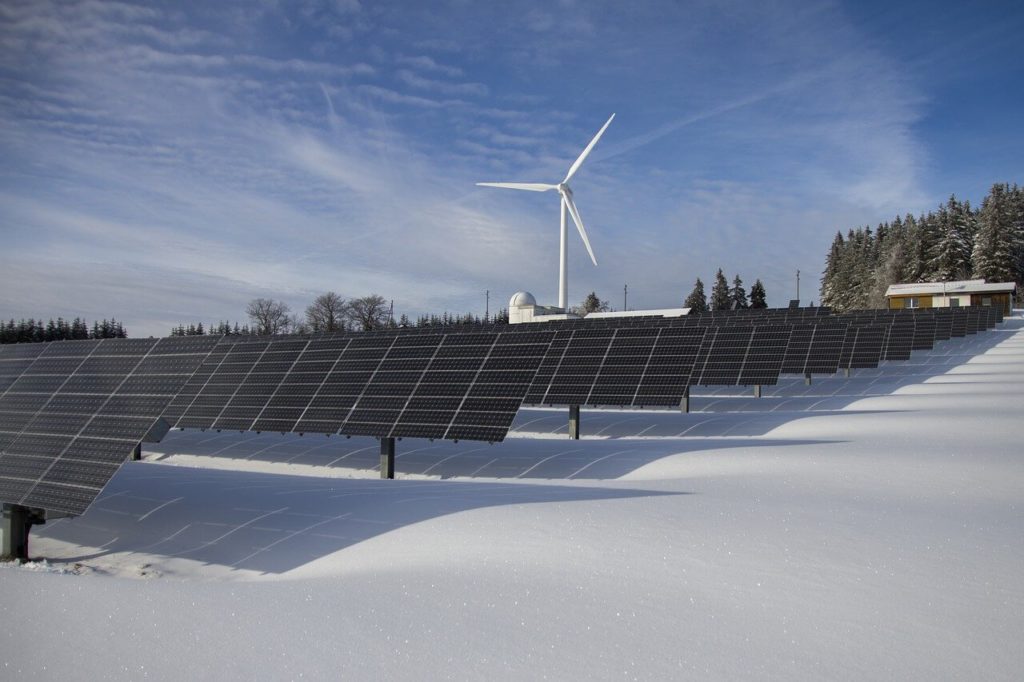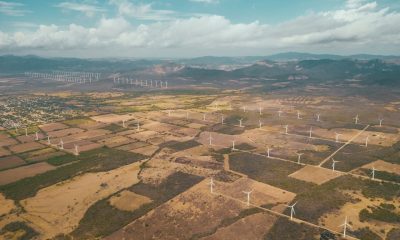Business
Political constraints influence world’s transition to renewable energy
A spectrum of opinions exists over the use of fossil fuels and renewable energy while political constraints keep getting in the way of the goal of clean energy.

Much of the North American economic activity gets fueled by the underlying energy economics feeding the system. North America remains the primary consumer of oil globally. British Petroleum reports in its BP Statistical Review of World Energy 2018 that North America uses 2.7 billion tons of oil annually. Globally, oil dominates, accounting for one-third of all energy consumed.
Renewable energy sources continue to increase and reached a high of 3.6 percent globally. Oil and politics remain intimately entwined worldwide affecting economies, decisions and even individual lives.
Fossil fuel comes costly
Fossil fuel usage comes at an extremely high price as in the cleanup. Its usage remains affordable for the masses as far as utility bills. Fossil fuels have a hidden cost every taxpayer pays. Plus, it means dealing with the pollution fossil fuels leave in air, land and water. Numerous studies list how that energy system causes asthma and cancer in some individuals. Not to mention the extraction of it from the ground and then the transportation and processing of fossil fuel all carry a bit of toxin which must be dealt with.
In the short term, fossil fuel remains a cheap way to fuel an economy and the more substantial price are paid later. In legislation and politics, it remains the favored energy until the Paris Agreement meetings where the possibilities of transforming to renewable energy economies exist.
Renewable energy has a price as well
Upfront, renewable energy proves to be expensive to install. Regulation within cities and jurisdictions must become circumvented to put it in. British Petroleum stated renewable power in 2017 grew by 17 percent, with wind providing half of that growth.
A report by IRENA (International Renewable Energy Agency) shows technological innovation, lower costs, low action prices for projections continue to fuel the renewable energy trend. In some localities globally, renewable energy becomes the best option. By 2020, IRENA insists electricity from renewables will become consistently cheaper than from fossil fuels creating a window of opportunity to make renewable energy ubiquitous.
It has been said a transition in the use of energy changes how the world works. Companies like Envision Energy hopes to foster that change with its wind turbines and solar panels.
Envision Energy remains a private Shanghai-based company presently. It has a Greenwich cloud platform that assesses the risk of investment in wind farms as well as developing wind turbines. In Forbes, its CEO Lei Zhang explained they believed renewable energy would eventually dominate. He mentioned in Asia utility-scale solar reached 3 cents per kilowatt-hour. In the region of Mongolia, wind energy came in about 1.5 cents per kilowatt-hour. In Asia electric transportation continues to expand. Soon management of grid, stability may become needed as all the diverse components of making energy continue to compete.

It is believed that renewable energy will become consistently cheaper than fossil fuels in the near future. (Source)
Other views
A series of articles in The Economist special report headlined clean power will shake up the global geopolitics. Some view oil as renewable energy, but it has a much longer timescale. Others claim oil and gas cause an oligopolistic group of elites who safeguard, secure, ship or ration the oil as they see fit.
Since America has discovered shale technology, its output has become 10 million barrels a day, reducing dependence on imported oil. A Reuters story in February confirmed that at least in Texas, crude has been sent to at least 30 countries but mostly to Asia. In October 2017, India began importing U.S. crude. China had followed suit till August 2018 when it suddenly stopped importing U.S. oil due to the trade war.
In the renewable energy field, China has increased its plans for electric vehicles. It seems Beijing will determine that course. Nearly 3 million electric vehicles globally mostly built in China have made the technology viable. Nio had a production ramp up and delivered 3,089 electric vehicles in China. The electric vehicle consumers will most likely cause a massive change to renewable energy.
All expert facts occurring simultaneously daily.
Possibilities
Renewable energy globally will take up a more significant share of the energy markets, but the question remains when? Economic warring will cause it as countries find ways to avoid being chokehold by oil needs. Some say the energy system will change from constraint and scarcity to variability and abundance. Oil pipeline politics occurs regularly, but it could transform to electric grid politics which goes hand in hand with the digital economy. Investing in power grids could become national security issues and renewable economies affected by cyber-attacks.
The European Union has set a goal to decarbonize by 2050. China has similar goals. Astoundingly, it remains America, despite its oil dependence, give the world much of its clean energy technology. If America holds on to oil too long, it could lose and decline. Canada has, with its Sustainable Development, mandates grabbed the bolts of renewable energy fully and so may ultimately win in North America.
For investors, it will be a wild, wild ride in determining which companies to support as it all sorts out. Expect good starts and innovative technology to fly forth and then be stalled by legislation or someone better at the politics of it all. Do not forget how marketing, if done well, can sell a lesser product or process better. At least the example of the transformation from a coal economy to oil economy exists to help determine prospects. Also, the fight between Edison and Tesla as the world adopted electricity might help.
Final format up to those who invest money in the companies and products consumers like best. Presently, it remains a time of transition with the possibility of a diversified energy economy in larger nations and across the globe that may eventually move to above the 90 percent renewable range.

-

 Business6 days ago
Business6 days agoLegal Process for Dividing Real Estate Inheritance
-

 Markets2 weeks ago
Markets2 weeks agoStock Markets Surge Amid Global Uncertainty, But Storm Clouds Loom
-

 Fintech4 days ago
Fintech4 days agoPUMP ICO Raises Eyebrows: Cash Grab or Meme Coin Meltdown?
-

 Africa2 weeks ago
Africa2 weeks agoMorocco Charts a Citizen-Centered Path for Ethical and Inclusive AI


























You must be logged in to post a comment Login